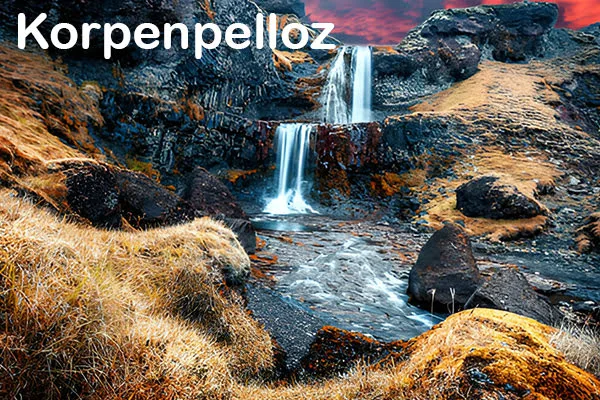
In an age where digital expressions, constructed languages, and cultural neologisms are emerging at lightning speed, terms like “Uncuymaza” spark intrigue and speculation. Whether derived from a fictional world, a cryptic social media trend, or an invented linguistic construct, “Uncuymaza” stands out as a term that begs interpretation. With no direct origin or documented history available, it becomes a canvas upon which multiple meanings and contexts can be imagined.
This article aims to delve into the potential interpretations and symbolic significances of the word “Uncuymaza,” exploring it from cultural, linguistic, artistic, and philosophical perspectives. Through this multidimensional lens, we not only speculate on its origin but also give it life, illustrating how seemingly random words can hold meaning, intention, and resonance.
Linguistic Origins and Hypothetical Etymology
“Uncuymaza” appears to be a constructed or synthesized term—possibly the fusion of fragments from various linguistic roots. Breaking it down phonetically, one might interpret “Uncuy” as a prefix reminiscent of “uncanny” or “uncovered,” suggesting something mysterious or revealed. “Maza,” on the other hand, may evoke connections to “maze,” “masa” (Spanish for dough), or even the Sanskrit-rooted “mazaa,” which means fun or pleasure in Hindi and Urdu.
Such a blend of linguistic sounds gives “Uncuymaza” a rhythm that could easily fit into a myth, a song lyric, or a title of an ancient tale. The phonetics are balanced, with soft consonants and open vowels, making the word feel exotic and poetic. Linguistically, it sits in a grey area—flexible enough to belong to no one language and yet familiar enough to feel like it belongs to all.
A Cultural Construct: Myth or Movement?
Another plausible interpretation is to view “Uncuymaza” as a cultural construct—a symbol or name that belongs to a fictional tradition, lost tribe, or even an emerging internet subculture. In this sense, “Uncuymaza” could be imagined as:
-
A Forgotten Deity or Spirit: In a mythological context, Uncuymaza might be a deity of dreams, hidden paths, or lost voices—an entity believed to whisper secrets to those who wander off the beaten path. Like many mythological beings, Uncuymaza could embody both chaos and wisdom, serving as a metaphor for the subconscious.
-
A Ritual or Ceremony: In another narrative, Uncuymaza could represent a ceremonial rite of passage in a fictional or speculative culture. Perhaps it is the moment when an individual transitions from one stage of life to another—through silence, storytelling, or dance.
-
A Digital Movement: In our modern context, Uncuymaza might be a digital term created within an online forum, used to describe a philosophy, aesthetic, or mindset. It could align with minimalism, postmodern surrealism, or even a rebellion against algorithmic predictability. Like “cottagecore,” “solarpunk,” or “weirdcore,” Uncuymaza might represent an emerging aesthetic that blends mystery with creative expression.
Artistic Interpretations: Symbolism and Expression
Artists often take enigmatic terms like “Uncuymaza” and use them as seeds for creativity. In this realm, the word might inspire:
-
A Painting Series: Imagine a gallery titled The Uncuymaza Cycle, where each painting attempts to depict a different stage of transformation—from confusion to clarity, darkness to light. Abstract textures, vivid colors, and dreamlike landscapes might convey a journey of internal discovery.
-
A Piece of Music or Soundscape: “Uncuymaza” could lend itself to an experimental track—a soundscape mixing natural echoes, synthetic chimes, and vocal layering to reflect the sensation of wandering through unknown realms. It could start quietly and build in intensity, echoing the emotional rise of a spiritual experience.
-
A Dance Form: As a choreography, Uncuymaza might be an improvisational dance rooted in intuition and emotion. The dancer could embody different personas, or aspects of identity, shifting seamlessly between vulnerability and strength, concealment and revelation.
Psychological and Philosophical Dimensions
Beyond its speculative culture or artistic applications, “Uncuymaza” also invites philosophical contemplation. Could it represent a state of mind or an internal process?
-
The Threshold of Change: Uncuymaza may symbolize the liminal space between what we are and what we are becoming. It is the unspoken moment when clarity begins to emerge but has not yet fully materialized. In psychological terms, it might describe the “incubation” stage of creativity or the internal wrestling of identity formation.
-
The Rejection of Structure: It could also be interpreted as an act of resistance against imposed definitions or rigid frameworks. To be “in Uncuymaza” may mean to dwell in ambiguity, to embrace the unknown, and to find solace in disorder.
-
The Joy of Obscurity: Uncuymaza may stand for the beauty found in things not fully understood. Like abstract art or experimental poetry, its power lies in how each person perceives it. It resists translation and categorization, offering instead an invitation to play with meaning.
A Narrative Device or Fictional Setting
In the world of literature, “Uncuymaza” would make an excellent name for a location, artifact, or protagonist. Writers could use it as:
-
A Magical Land: Uncuymaza might be a realm where the laws of physics and morality bend. A place where time loops, gravity falters, and memory constructs reality. This world could challenge protagonists to confront fears or truths they’ve buried deep inside.
-
An Enigmatic Character: A wandering sage named Uncuymaza might appear across legends and stories, offering riddles and rare insights. They might embody contradiction—kind but severe, wise yet forgetful, old but eternally youthful.
-
An Ancient Relic: The “Key of Uncuymaza” could be an object of power lost through ages. Those who possess it can unlock forgotten knowledge—but only at the risk of losing part of themselves.
Social and Emotional Resonance
At its core, Uncuymaza might function as a metaphor for emotions or states of being that are hard to name. It can symbolize:
-
Melancholic Wonder: The feeling you get when something is beautiful and haunting at the same time. The feeling of reading a letter written by someone who no longer exists.
-
The Echo of Forgotten Dreams: Those flashes of memory from childhood or a life you almost lived. It can speak to nostalgia for a future that never arrived.
-
The Lure of Mystery: Uncuymaza could symbolize our eternal human desire to understand what lies just beyond the veil—be it in science, art, or the soul.
Conclusion: Meaning Through Imagination
What is “Uncuymaza”? In a literal sense, it may be nothing. But in a metaphorical, artistic, and imaginative framework, it is everything we allow it to be. It stands as a testament to the power of language—not merely as a vehicle for communication but as a catalyst for exploration.
Through speculative linguistics, fictional storytelling, emotional introspection, and creative imagination, “Uncuymaza” becomes a word of infinite possibility. Whether used in a poem, a game, a dream, or a whispered conversation, it captures a spirit that refuses to be pinned down—yet somehow still feels deeply familiar.






